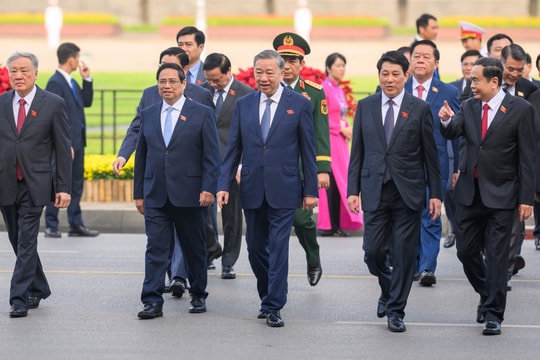National Assembly Delegate Doan Nghe An: Should carefully consider establishing People's Inspection Boards at organizations using labor in the non-state sector
(Baonghean.vn) - On the afternoon of October 22, continuing the 4th Session, at Dien Hong Hall, National Assembly House, under the chairmanship of National Assembly Chairman Vuong Dinh Hue, the National Assembly listened to the Presentation and Report on the draft Law on Cooperatives (amended); discussed the draft Law on Implementing Grassroots Democracy... Vice Chairman of the National Assembly Nguyen Khac Dinh chaired the Session.
 |
Vice Chairman of the National Assembly Nguyen Khac Dinh chaired the meeting. Photo: Quang Khanh |
Speaking at the discussion, delegate Thai Thi An Chung - Member of the Provincial Party Executive Committee, Deputy Head of the National Assembly Delegation of Nghe An province basically agreed with the report on receiving and explaining the draft Law on Implementing Democracy at the Grassroots level of the National Assembly Standing Committee.
Regarding issues with different opinions, delegates expressed their views on expanding the scope of regulation of democracy implementation to organizations that employ workers.
First of all, it must be affirmed that democracy in organizations that use labor, including enterprises, is necessary. However, according to delegate Thai Thi An Chung, expanding the scope of regulation of the Law on Implementing Democracy at the Grassroots to organizations that use labor is not appropriate.
 |
Delegate Thai Thi An Chung - Member of the Provincial Party Executive Committee, Deputy Head of the National Assembly Delegation of Nghe An province spoke at the discussion on the draft Law on Implementing Grassroots Democracy. Photo: Quang Khanh |
Because Article 2 of the 2013 Constitution affirms: The Socialist Republic of Vietnam is a socialist rule of law state of the people, by the people, for the people. The Socialist Republic of Vietnam is owned by the people; all state power belongs to the people. Thus, the concept of Democracy here is understood with the connotation and scope of the relationship between the people and the State.
Article 8 of the 2013 Constitution also stipulates: “State agencies, cadres, civil servants and public employees must respect the people, wholeheartedly serve the people, maintain close contact with the people, listen to their opinions and be subject to their supervision.”
Meanwhile, an enterprise is an economic organization, established on the basis of capital contributions from members. Enterprises can hire, lease, and use labor by labor contracts. The relationship between employers and employees is a labor relationship and has been regulated by labor laws, collective labor agreements, labor contracts, etc.
The 2013 Constitution stipulates: “The State protects the legitimate rights and interests of employees and employers and creates conditions for building progressive, harmonious and stable labor relations.”
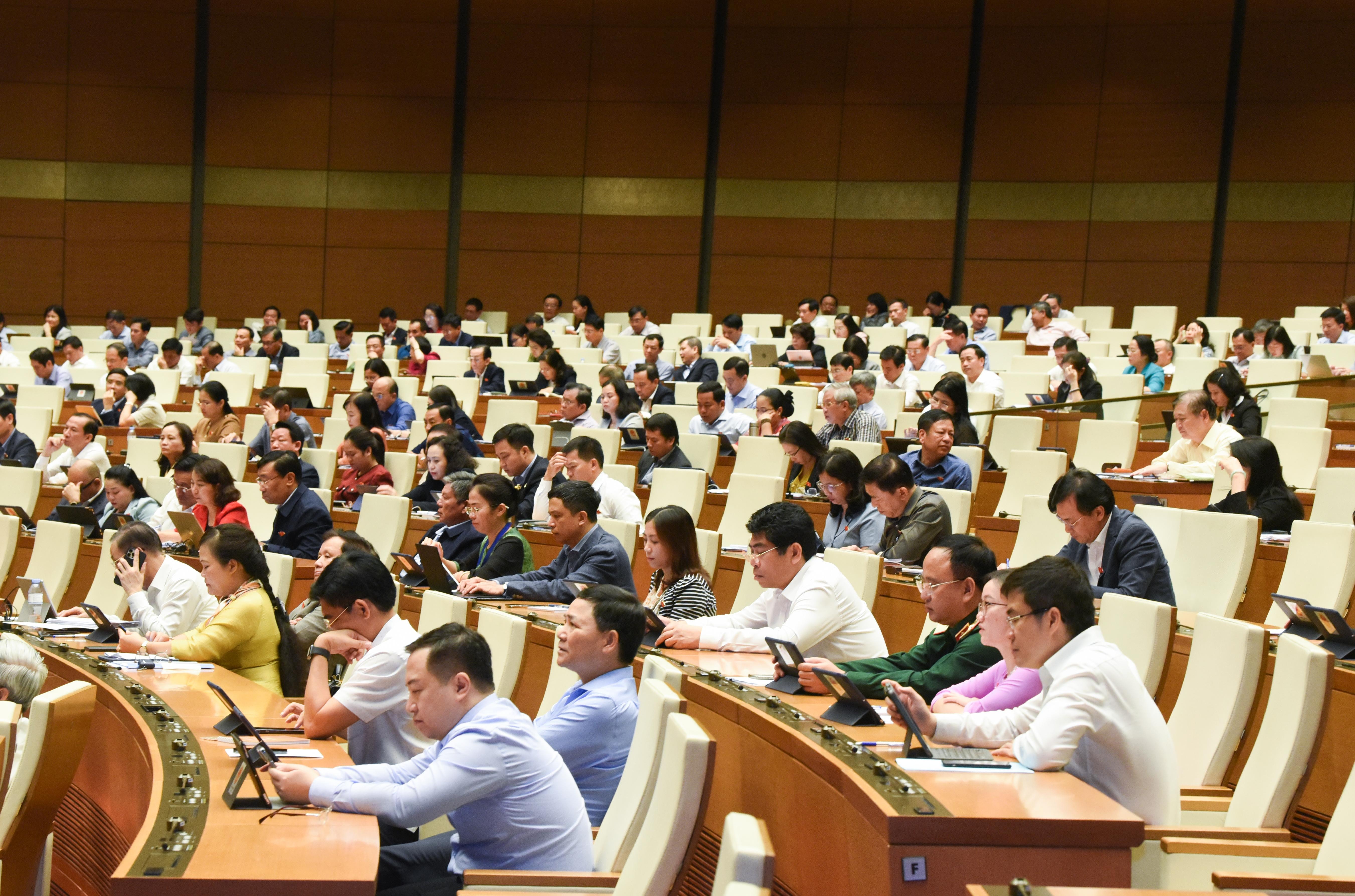 |
National Assembly deputies at the working session on the afternoon of October 22 at Dien Hong Hall, National Assembly House. Photo: Quang Khanh |
The report on acceptance and explanation of the Standing Committee of the National Assembly clearly stated that the implementation of democracy in enterprises in particular and organizations that hire, lease, and use labor in general is not a new issue but has long been affirmed in Party documents and institutionalized in many documents regulating the implementation of democracy in all types of enterprises and at the workplace.
The implementation of these regulations has achieved positive results, contributing to improving production and business efficiency of enterprises, improving working conditions, and increasing income for workers.
However, these regulations demonstrate the goal of building progressive, harmonious and stable labor relations between the employer and the employee. Therefore, the unification of democracy in the relationship between the People and the State with democracy in enterprises is somewhat forced.
“For the above reasons, I recommend that the scope of regulation of the draft Law should only regulate the implementation of democracy in communes, wards, towns and State agencies, public service units to promote the role of the people as masters, in accordance with the provisions of the 2013 Constitution and the Party's guidelines and policies,” said the delegate of the Nghe An delegation.
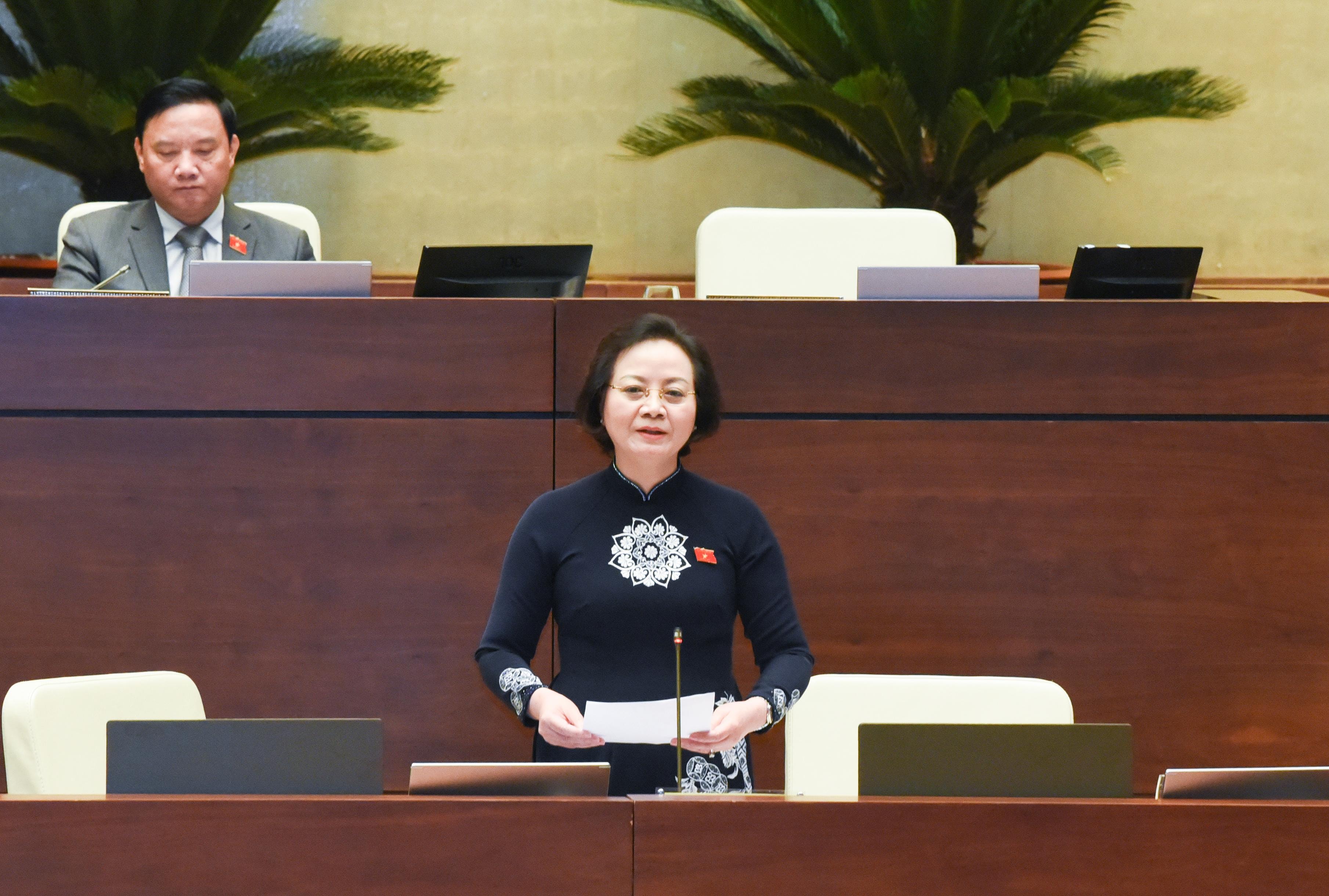 |
Minister of Home Affairs Pham Thi Thanh Tra spoke to clarify the issues that delegates were interested in. Photo: Quang Khanh |
Regarding the establishment of People's Inspection Committees in organizations employing workers in the non-state sector, the Deputy Head of the National Assembly Delegation of Nghe An suggested that the necessity should be carefully considered, because this is new content and its impact has not been thoroughly assessed.
The activities of organizations that employ workers such as enterprises and cooperatives are not only subject to the regulation of the legal system but also have their own Charters.
During their operations, enterprises are regularly subject to inspection by specialized inspection agencies of authorities at all levels... Enterprises and cooperatives themselves must also establish an internal control board according to the provisions of the Law on Enterprises and the Law on Cooperatives.
On the other hand, due to the democratic nature in enterprises being different from that in state agencies and public service units, the regulation on the establishment of People's Inspectorate Boards in enterprises is inappropriate and has the potential to affect the investment environment and business environment of Vietnam.
 |
Panorama of the working session on the afternoon of October 22 at Dien Hong Hall, National Assembly House. Photo: Quang Khanh |
Regarding the Community Supervision Board, Article 41 of the draft stipulates that the Community Investment Supervision Board is established for each public investment program, project, and investment project in the form of public-private partnership (PPP).
According to the female delegate of Nghe An Delegation, this provision is not feasible and not suitable with the conditions and operational capacity of the Community Supervision Board as stipulated in the draft law. For these projects, supervision must be carried out by competent State agencies and organizations.
“In my opinion, it is appropriate to only establish a Community Investment Supervision Board for investment programs and projects using capital and efforts of the community or direct funding from organizations and individuals for communes, wards and towns,” said Ms. Thai Thi An Chung.

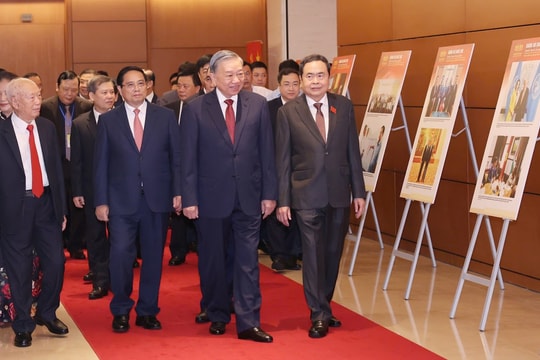
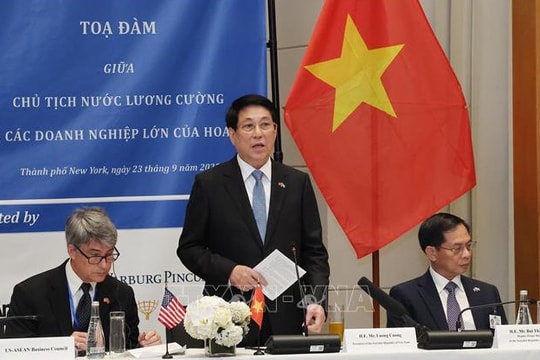
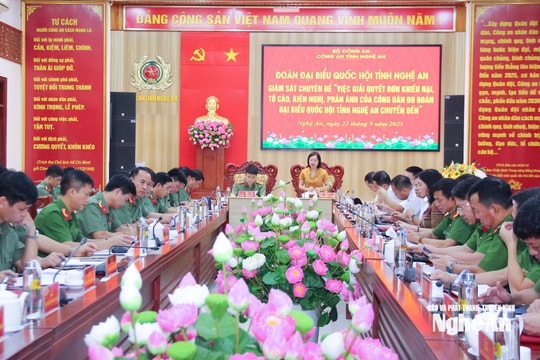
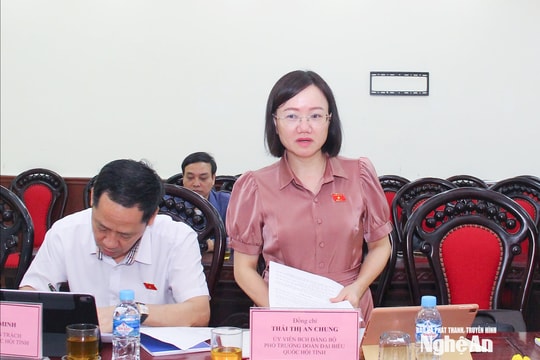
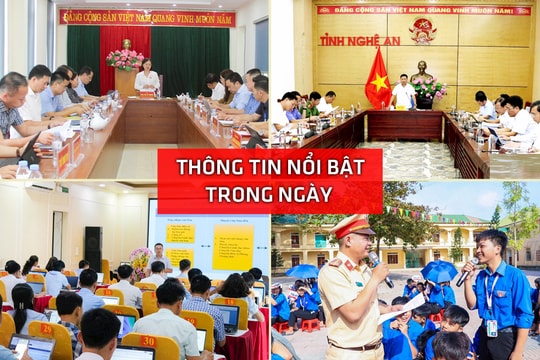
.jpg)
